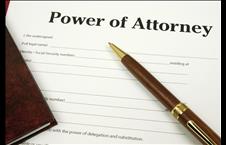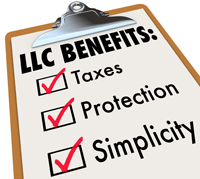|
New York Real Estate & Estate Planning Blog
Monday, June 20, 2016
Goodwill is an asset that is an intangible part of a business being purchased. In spite of its intangibility, goodwill may be worth more than concrete assets, such as property, buildings, machinery or inventory. Goodwill is the essence of the company's value to its customers, clients, and employees and, as such, is invaluable to any buyer. It is easier, as many people intending to purchase a business will tell you, to maintain goodwill than to establish it, since, among other things, goodwill takes time to build. Purchasing a business that already has established goodwill in the community can give the new owner a strong competitive edge.
What Intangible Assets Compose Goodwill?
Prospective buyers and sellers should be aware of the various aspects of goodwill. Not all will apply to every business, but aspects of goodwill include:
- Brand name
- Solid customer base
- Good customer relations
- Good employee relations
- Patents or proprietary technology
- General reputation
- Future sales projection
Goodwill is a saleable asset, presumed to generate sales revenue and customer continuity. Having been established over years of honest and efficient behavior by the previous owner, it is transferable to the buyer, assuming the buyer maintains the pre-established excellent business practices.
How Is Goodwill Established?
As mentioned, goodwill can only be established over a period of years during which it is nourished and maintained. In business, it is assumed that expenditures have been involved in creating and preserving goodwill. Steps taken to do this include:
- Healthy and continuous investment in promotion
- Maintenance of necessary quantity of high quality customer supplies
- Support of excellent relationships with both customers and suppliers
- Maintenance of efficient and respectful management and employees relationships
- Establishment and maintenance of corporate identity and image
- Keeping up an appropriate location
How Is Goodwill Evaluated?
There is no set price for goodwill, though it very definitely features in sales negotiations. Generally speaking, goodwill is reflected in the amount in excess of the firm's total value of assets and liabilities. In well-established businesses, goodwill may be reflected in a price several times higher than the firm's physical assets alone would be reasonably worth.
There are several complex methods by which business goodwill can be calculated so it is essential to have a highly competent business attorney involved in the negotiation process.
Monday, June 13, 2016

An executor is responsible for the administration of an estate. The executor’s signature carries the same weight of the person whose estate is being administered. He or she must pay the deceased’s debts and then distribute the remaining assets of the estate. If any of the assets of the estate earn money, an executor must manage those assets responsibly. The process of doing so can be intimidating for an individual who has never done so before.
After a person passes away, the executor must locate the will and file it with the local probate office. Copies of the death certificate should be obtained and sent to banks, creditors, and relevant government agencies like social security. He or she should set up a new bank account in the name of the estate. All income received for the deceased, such as remaining paychecks, rents from investment properties, and the collection of outstanding loans receivable, should go into this separate bank account. Bills that need to be paid, like mortgage payments or tax bills, can be paid from this account. Assets should be maintained for the benefit of the estate’s heirs. An executor is under no obligation to contribute to an estate’s assets to pay the estate’s expenses.
An inventory of assets should be compiled and maintained by the executor at all times. An accounting of the estate’s assets, debts, income, and expenses should also be available upon request. If probate is not necessary to distribute the assets of an estate, the executor can elect not to enter probate. Assets may need to be sold in order to be distributed to the heirs. Only the executor can transfer title on behalf of an estate. If an estate becomes insolvent, the executor must declare bankruptcy on behalf of the estate. After debts are paid and assets are distributed, an executor must dispose of any property remaining. He or she may be required to hire an attorney and appear in court on behalf of the estate if the will is challenged. For all of this trouble, an executor is permitted to take a fee from the estate’s assets. However, because the executor of an estate is usually a close family member, it is not uncommon for the executor to waive this fee. If any of these responsibilities are overwhelming for an executor, he or she may elect not to accept the position, or, if he or she has already accepted, may resign at any time.
Monday, May 23, 2016

There are many factors to consider when deciding whether or not to implement Medicaid planning. If you’re in good health, now would be the prime time to do this planning. The main reason is that any Medicaid planning may entail using an irrevocable trust, or perhaps gifts to your children, which would incur a five-year look back for Medicaid qualification purposes. The use of an irrevocable trust to receive these gifts would provide more protection and in some cases more control for you.
As an example, if you were to gift assets directly to a child, that child could be sued or could go through a divorce, and those assets could be lost to a creditor or a divorcing spouse even though the child had intended to hold those assets intact in case they needed to be returned to you. If instead, you had used an irrevocable trust to receive the gifted assets, those assets would not have been considered the child’s and therefore would not have been lost to the child’s creditor or a divorcing spouse. You need to understand that doing this type of planning, and using the irrevocable trust, may mean that those assets are not available to you and therefore you need to be comfortable with that structure.
Depending upon the size of your estate, and your sources of income, perhaps you have sufficient assets to pay for your own care for quite some time. You should work closely with an attorney knowledgeable about Medicaid planning as well as a financial planner that can help identify your sources of income should you need long-term care. Also, you should look into whether or not you could qualify for long-term care insurance, and how much the premiums would be on that type of insurance.
Monday, May 16, 2016

Testamentary capacity refers to a person’s ability to understand and execute a will. As a general rule, most people who are over the age of eighteen are thought to be competent to make and sign the will. They must be able to understand that they are signing the will, they must understand the nature of the property being affected by the will, and they must remember and understand who is affected by the will. These are simple burdens to meet. However, there are a number of reasons a person might challenge a will based on testamentary capacity.
If the testator of a will suffers from paranoid delusions, he or she may make changes to a testamentary document based on beliefs that have no basis in reality. If a disinherited heir can show that a testator suffered from such insane delusions when the changes were made, he or she can have the will invalidated. Similarly a person suffering from dementia or Alzheimer’s disease may be declared unfit to make a will. If a person suffers from a mental or physical disability that prevents them from understanding from understanding that a will is an instrument that is meant to direct how assets are to be distributed in the event of his or her death, that person is not capable of executing a valid will.
It is not entirely uncommon that disinherited heirs complain that a caretaker or a new acquaintance brainwashed the testator into changing his or her will. This is not an accusation of incapacity to make the will, but rather a claim of undue influence. If the third party suggested making the changes, if the third party threatened to withhold care if the will was not changed, or if the third party did anything at all to produce a will that would not be the testator’s intent absent that influence, the will may be set aside for undue influence. Regardless of the reason for the challenge, these determinations will only be made after the testator’s death if the will is presented to a court and challenged. For this reason, it is especially important for the testator to be as thorough as possible in making an estate plan and making sure that any changes are made with the assistance of an experienced estate planning attorney.
Monday, May 9, 2016

A durable power of attorney is an important part of an estate plan. It provides that, in the event of disability or incapacitation, a preselected agent can be granted power over the affairs of the individual signing the document. This power can be limited to specific decisions, like the decision to continue life sustaining treatment, or it can be much broader in scope to allow the agent power over the individual’s financial dealings.
Estate planning is meant to prepare for contingencies beyond an individual’s control. A traumatic accident could leave an individual without the ability to manage his or her own financial affairs.
Read more . . .
Monday, April 25, 2016

In order to predict how much your estate will have to pay in taxes, one must first determine the value of the estate. To determine this, many assets might have to be appraised at fair market value. The estate includes all assets including real estate, cash, securities, stocks, bonds, business interests, loans receivable, furnishings, jewelry, and other valuables.
Once your net worth is established, you can subtract liabilities like mortgages, credit cards, other legitimate debts, funeral expenses, medical bills, and the administrative cost to settle your estate including attorney, accounting and appraisal fees, storage and shipping fees, insurances, and court fees. The administrative expenses will likely total roughly 5% of the total estate.
Read more . . .
Monday, April 18, 2016

Life insurance can be an integral part of an estate plan. Policies can be set up to be paid directly to the beneficiary, without the need to pass through the estate, and without the need for any taxes to be paid. Having a life insurance policy ensures that some assets will be liquid, so that debts and expenses can be paid quickly and easily without the need to dispose of assets. Beneficiaries can be changed at any time as can the benefit amount. The policy can be used to accumulate savings if the plan is surrendered before death.
Read more . . .
Monday, April 11, 2016

The conversation about a person’s last wishes can be an awkward one for both the individual who is the topic of conversation and his or her loved ones. The end of someone’s life is not a topic anyone looks forward to discussing. It is, however, an important conversation that must be had so that the family understands the testator’s final wishes before he or she passes away. If a significant sum is being left to someone or some entity outside of the family, an explanation of this action may go a long way to avoiding a contested will. In a similar vein, if one heir is receiving a larger share of the estate than the others, it is prudent to have this action explained.
Read more . . .
Monday, March 28, 2016
 There are different types of commercial leases, such as gross leases, modified gross leases and net leases. One variation of the net lease is a “triple net” lease, in which the tenant is liable for a net amount of property taxes, insurance and common area maintenance relating to the property they are possessing. Most of the time, additional fees in the form of common area maintenance expenses come up in the context of a triple net lease. Landlords ask tenants to pay these fees so that they contribute to the cost of maintaining common areas such as entranceways, walkways, parking lots and hallways, as well as services enjoyed by the tenant such as janitors, security and landscapers. These fees are in addition to a rental payment and can be substantial depending upon the situation. There are different types of commercial leases, such as gross leases, modified gross leases and net leases. One variation of the net lease is a “triple net” lease, in which the tenant is liable for a net amount of property taxes, insurance and common area maintenance relating to the property they are possessing. Most of the time, additional fees in the form of common area maintenance expenses come up in the context of a triple net lease. Landlords ask tenants to pay these fees so that they contribute to the cost of maintaining common areas such as entranceways, walkways, parking lots and hallways, as well as services enjoyed by the tenant such as janitors, security and landscapers. These fees are in addition to a rental payment and can be substantial depending upon the situation.
It is essential that a business owner be informed about the terms of the lease they are entering into, especially if these terms have the potential to cost them money. As common area expenses can be a significant cost they are often controversial and hotly negotiated. Most of the disagreements over these terms relate to the distinction between costs for the maintenance of common areas and expenses that are primarily the landlord’s responsibility. Generally, the test is who will benefit most from the expense, the tenant or the landlord. For example, it can be argued that tenants should not be paying for improvements that are being done to increase the value of the property as the landlord will be the primary beneficiary of these improvements.
When negotiating common area expenses, the business owner should inquire as to the purpose of the payments. They should also ask whether they will be able to review what the money is being spent on at any given time. Business owners should seek the advice of an attorney as they will be able to explain many of the options available to them. For example, there might be an opportunity to ask for a capped or fixed rate. Most importantly, they should be informed about their legal options in the event of a dispute.
If you are signing a commercial lease and will be responsible for common area expenses, it is in your best interest to consult with a business law or real estate attorney before signing on the dotted line.
Monday, March 21, 2016
 The role of an executor is to effectuate a deceased person’s wishes as declared in a will after he or she has passed on. The executor’s responsibilities include the distribution of assets according to the will, the maintenance of assets until the will is settled, and the paying of estate bills and debts. An old joke says that you should choose an enemy to perform the task because it is such a thankless job, even though the executor may take a percentage of the estate’s assets as a fee. The following issues should be considered when choosing an executor for one's estate. The role of an executor is to effectuate a deceased person’s wishes as declared in a will after he or she has passed on. The executor’s responsibilities include the distribution of assets according to the will, the maintenance of assets until the will is settled, and the paying of estate bills and debts. An old joke says that you should choose an enemy to perform the task because it is such a thankless job, even though the executor may take a percentage of the estate’s assets as a fee. The following issues should be considered when choosing an executor for one's estate.
Competency: The executor of an estate will be going through financial and legal documents and transferring documents from the testator to the beneficiaries. If there are legal proceedings, the executor must make all necessary court appearances. There is no requirement that a testator have any financial or legal training, but familiarity with these areas does avoid the intimidation felt by lay people, and potentially saves money on professional fees.
Trustworthiness: The signature of an executor is equivalent to that of the testator of an estate. The executor has full control over all of an estate’s assets. He or she will be required to go through all of the papers of the deceased to confirm what assets are available to be distributed. The temptation to transfer assets into the executor's own name always exists, particularly when there is a large estate. It is important to choose a person with integrity who will resist this temptation. It makes sense to utilize an individual who is an heir to fill the role to alleviate this concern.
Availability: The work of collecting rents, maintaining property, and paying debts can take more than a few hours a week. Selecting an executor with significant obligations to work or family may cause problems if he or she does not have the time available to devote to the task. If an executor must travel great distances to address issues that arise, there will be more of a time commitment necessary, not to mention greater expenses for the estate.
Family dynamics: Selection of the wrong person to act as executor can create resentment and hostility among an estate’s heirs. A testator should be aware of how family members interact with one another and avoid picking someone who may provoke conflict. Even the perception of impropriety can lead to a lawsuit, which will serve to take money out of the estate’s coffers and delay the legitimate distribution of the estate.
Monday, March 14, 2016
 A limited liability company is a very popular business form that combines some of the best features of a corporation and a partnership. Like a partnership, an LLC is taxed through its individual members. Like a corporation, it provides limited liability to its members. In most situations, the personal assets of LLC members cannot be reached for the debts or liabilities of the business. But, also similar to a corporation, there are certain scenarios where personal assets can be reached. Most LLCs have more than one member. In recent years, a variation called the single member LLC has become widely used. As the name suggests, these LLCs have only one member. While the structure and organizational requirements of single member LLCs are essentially the same as ordinary LLCs, there has been some uncertainty as to whether these businesses afford their members the same type of limited liability. A limited liability company is a very popular business form that combines some of the best features of a corporation and a partnership. Like a partnership, an LLC is taxed through its individual members. Like a corporation, it provides limited liability to its members. In most situations, the personal assets of LLC members cannot be reached for the debts or liabilities of the business. But, also similar to a corporation, there are certain scenarios where personal assets can be reached. Most LLCs have more than one member. In recent years, a variation called the single member LLC has become widely used. As the name suggests, these LLCs have only one member. While the structure and organizational requirements of single member LLCs are essentially the same as ordinary LLCs, there has been some uncertainty as to whether these businesses afford their members the same type of limited liability.
Initially, not all states recognized single member LLCs. Now, all fifty states and Washington, D.C. recognize these business forms and have statutes governing them. Generally, single member LLCs provide personal asset protection to their members for the liabilities of the business. But, they do not always provide the reverse protection that a corporation or ordinary LLC includes. In the case of an ordinary LLC, the personal creditors of the member cannot go after that member’s share without what is referred to as a “charging order”. A charging order is a legal device that allows the creditor to place a lien on the member’s LLC interest. The member’s interest is essentially any distributions made to them by the LLC. Therefore, creditors can collect the members interest but not outright and not without jumping through a number of hoops. In the case of a single member LLC, the charging order protection may not be provided. While some states like Wyoming have specific laws making the charging order protection applicable to these types of businesses, other states, like California and New York, have made no decisions distinguishing ordinary LLCs from single member LLCs. Therefore, in these states it is important to remember that legislation and judicial decisions have the potential to cause serious problems for business owners in the future.
When wrestling with matters of business formation there are many factors that need to be considered and the advice of a seasoned business law attorney can help. Contact our office for a consultation today.
John P. Rosenblatt, Attorney at Law assists clients in Nassau County, Suffolk County, the Five Boroughs, the NY Metro Area, Westchester County, Putnam County, Orange County, Dutchess County and Rockland County.
|

|
|
|